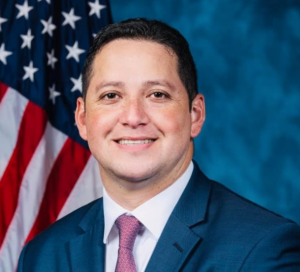Harris County Commissioners Court will meet Monday to discuss various issues, including the potential adoption of updated “Harris County Equity Guidelines.” The meeting comes as many Harris County residents remain without power in the wake of Hurricane Beryl.
As of 7 p.m. on July 11, Centerpoint Energy reported that 824,941 of its customers in Harris County were without power, which represents 38.94% of Centerpoint’s customers in Harris County.
The proposed Harris County Equity Guidelines have their roots in the aftermath of the 2020 death of George Floyd. According to the Equity Guidelines document published by Harris County, “On June 30, 2020, Commissioners Court passed a resolution declaring racism and sexism as a public health crisis, recognizing that “racism has deep and harmful impacts that unfairly disadvantages Black, Indigenous, People of Color” and “harms every person in our society.” By addressing sexism alongside racism, the county is equipped to examine disparities at multiple layers such as the compounding effects of race and gender on wages and Minority- and/or Women-Owned Business Enterprise (M\WBE) contracts.”
Since the passage of that resolution by Harris County Commissioners Court, Harris County has prioritized “equity” in projects such as flood control and hired a Chief Equity Officer.
Harris County’s proposal defines “equity” as “the actionable pursuit of recognizing that there are groups who have disproportionately benefited from inequities and others who have had the burden of solving the problems created by inequities. In other words, equity is the actionable commitment to significantly reduce the disparity in the distribution of benefits and the actionable commitment in reducing the burdens of aligning and embedding goals, objectives, and outcomes related to inclusivity and accessibility to the historically marginalized.”
The Harris County Equity Framework Model further breaks down “equity” into three parts- “Structural Equity,” “Procedural Equity,” and “Socio-emotionally Intelligent Equity.”
The proposed Equity Guidelines also set forth the following ways in which County departments are “encouraged” to “embed equity,” which looks to notoriously liberal cities such as Austin, Texas, Madison, Wisconsin, and Seattle, Washington as examples:
• Pursue ongoing equity training from the Government Alliance on Race and Equity (GARE) or similar resources.
• Identify equity champions to spearhead changes in each department, embedding equity in the department’s internal processes and external projects and services.
• Create an equity action team including external stakeholders to foster a sense of mutual understanding between Harris County and the communities we serve. For example, the City of Austin created such a team to ensure that community input helps define what equity means and how it is assessed in city policies and decisions. The team includes over 450 members from across a variety of different organizations and institutions in the city.
• Use an equity hiring tool in hiring processes and enable fairer candidate evaluations (support available from Human Resources).
• Create equity performance measures and setting associated targets to drive accountability and transparency in equity-related efforts.
• Create an equity assessment template for use in evaluating policy proposals and projects. The City of Madison, Wisconsin piloted both comprehensive (for broad impact policies) and fast-track (for smaller projects) versions of a Racial Equity and Social Justice Tool designed to ensure equity is built into the development of policies, programs, and budgets as early as possible, rather than as an afterthought.
• Analyze the impact of current services and potential decisions, use a burden and/or benefit analysis to determine the equity outcomes of a given project. This might involve:
- Working with an impact evaluation organization: Many academic institutions and research centers offer data and impact analysis which can demonstrate the ongoing effects or overall impacts of a given policy change. Proactively forming partnerships and/or using data sources to track equity impacts can help programs course-correct towards more equitable outcomes or provide information that can improve the design and development of future projects.
- Creating an accountability initiative: For example, the City of Seattle created a Race and Social Justice Initiative that seeks to eliminate institutional racism and hold government responsible for when projects or policies fall short on equity standards.
An item proposing the expenditure of $210,000 in public funds for five public art murals by the organization Street Art for Mankind is also on the agenda for Monday’s meeting of Commissioners Court. In recent years, Street Art for Mankind has been active in creating public art projects with leftist political themes in Houston and other cities across the Country.
According to Street Art for Mankind’s website, “Big Art Bigger Change Murals is an unprecedented series of now 44 large murals curated by Street Art for Mankind and created by prominent international and local artists to amplify social and environmental justice in Houston and beyond, and to beautify and redynamize the Downtown and make it “The New Street Art Destination”. The themes chosen for each mural are inspired by the United Nations Sustainable Development Goals, the diversity of the local community and the drive of local people and organizations who make a difference in Houston and around the world.”
According to the Harris County Auditor’s website, the county has paid Street Art for Mankind over $382,000 over the past two years. Earlier this year, the Harris County Commissioners Court approved an additional $330,000 expenditure to Central Houston Civic Improvement, Inc. to fund eleven murals by Street Art for Mankind.







